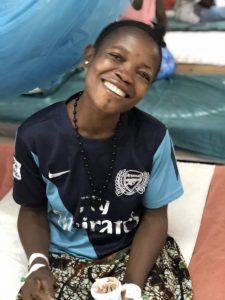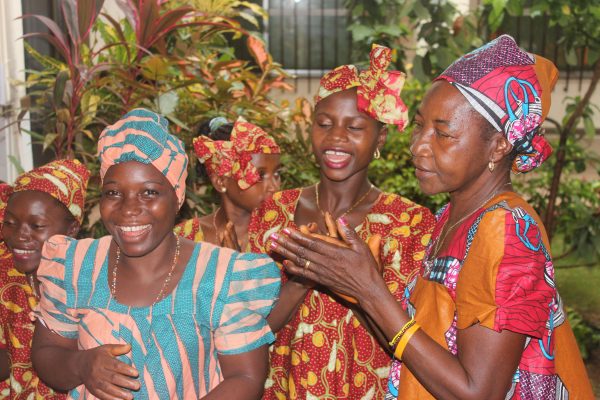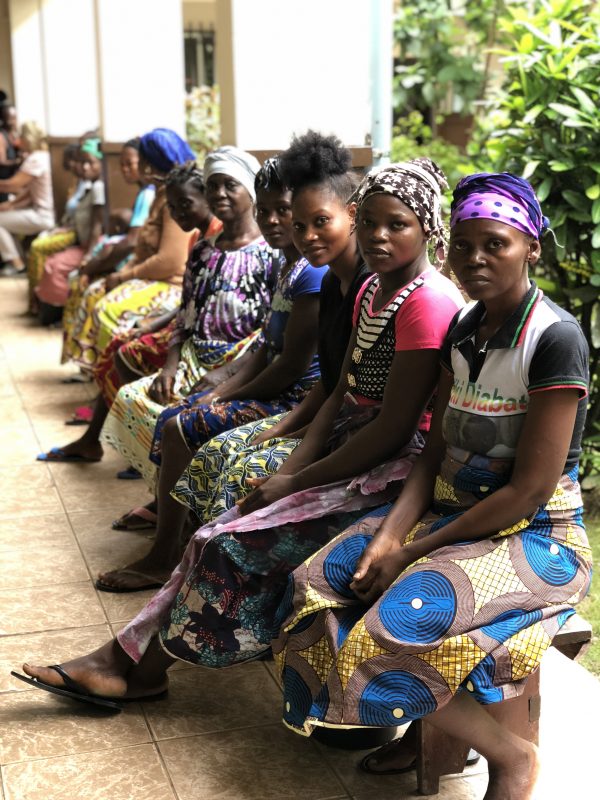The Condition Millions of Women and Girls Are Suffering from
and What the Fight Against It Can Teach Us
Freedom From Fistula
Women’s History Month
March is Women’s History Month, a time for us to reflect on and celebrate the vital role women and girls have played in shaping the freedoms we have today. And yet, as we highlight their extraordinary achievements in improving human rights, civil liberties and access to healthcare for women across the globe (and rightly so!), there are 2 million women and girls in Africa suffering in silence from a medical condition that’s relatively unaddressed in this part of the world, but is treatable, preventable, and essentially eradicated in developed nations.
Obstetric fistula is what we’re talking about, and it’s a condition that involves a hole between the birth canal and bladder or rectum which occurs due to prolonged or obstructed childbirth. Not only do women who suffer fistulas frequently lose their babies, but without access to timely, quality medical treatment, it also leaves a woman indefinitely leaking urine, feces or both.
Maybe you’ve heard of fistula, but did you know that 25 percent of known fistula cases occur in young girls under the age of 18?
Our sisters in developing nations already face a number of daily battles unthinkable to us, like barriers to literacy and education, but the reality is even worse for those suffering from fistulas: They’re ostracized, because their fistulas leak and smell; they’re deemed worthless, because they can’t rear any more kids; and they’re without any agency because they have no way to earn an income. They’re the most vulnerable members of not just of their own communities, but of the world.
The good news: An organization called Freedom from Fistula is combating this rampant issue in a meaningful way. Over the last ten years, it has helped more than 140,000 women and girls and trained more than 500 nurses and doctors in Africa.
“I have met close to 100 fistula patients over the years. I’ve heard stories that made me cry and question humanity,” said Dorthe Tate, Board Director of Freedom from Fistula USA. “How could these women, of no fault of their own, be subjected to lives of such degradation, shame and suffering? Freedom from Fistula takes in every woman who needs help, for free, treats them with love and gives them the very best care there is.”

Charline, a Freedom from Fistula patient in Madagascar, agrees. Having suffered a fistula at the age of 16, she was rejected by her community because of her smell. At a Freedom from Fistula clinic, she received free surgery to repair her fistula and counseling and skills to prepare her for life afterwards.
“I will go back to my village and will tell people about my healing,” Charline said. “I want to encourage others, because I believe there is always hope.”
Are you inspired yet? Take note, MissHeard readers! In honor of Women’s History Month, we’re sharing some important lessons we’ve learned from the fight against fistula that you (yes, you) can apply to create change in your own community.

Peer-to-Peer, Woman-to-Woman and Girl-to-Girl Support Is Key
A major component of Freedom from Fistula’s work is identifying women and girls suffering with fistulas. Social stigmas and embarrassment faced by prospective patients often make this work difficult, but training former patients, nurses and community health workers to find patients within their own communities and spread the word to those who are suffering and too frightened to seek help is a strategy that is working quite well. In 2017, 50% of patients brought into the Malawi clinic were referred by these volunteer ambassadors, and it makes sense: Trust is much more easily established between people with similar lived experiences in the world.
No Solution Exists in a Vacuum
Susan B. Anthony and the Suffragettes knew that they couldn’t create real change for women without first getting voting rights, just like Malala knew she couldn’t fight for educational change for girls in Pakistan without international involvement and just like Gloria Steinem knew wielding her power of reporting was the only way to expose misogyny. All of these women created change by understanding the systems in which they were operating and solving problems that work around them. This line of thinking is why beyond medical recovery, Freedom from Fistula clinics also focus on teaching life skills that offer women and girls opportunities for their futures. Education in literacy, numeracy, handicrafts and cooking healthy food on a low budget, ensures girls can successfully reintegrate back into society. In Malawi in particular, there is a large need for cell phone chargers, so recovering girls are given solar charging stations, aptly named ‘SunnyMoney’ boxes, as an income-generating opportunity. These stations can charge up to 10 mobile phones at a time, and patients charge a fee for this service, making them self-employed and a valuable economical asset to the community.
‘True Change Comes from Within’
Cheesy, we know, but true! To change the mindsets and skill-sets of people, look within yourself and within your community first. A key part of Freedom from Fistula’s mission is to generate opportunities within the healthcare systems they work in, making a point to only use international medical staff if a.) there are absolutely no in-country people to do the job or b.) they’re training and upskilling in-country staff for long-term solutions.
To learn more about fistula or to donate to the cause of ending it worldwide, visit www.freedomfromfistula.org. 100% of proceeds go directly to the projects, as administrative costs are met by the Gloag Foundation.
Related Reading
Here’s How You Can Make an Impact on the Life of a Young Refugee Woman
MissHeard Joins Footage Foundation for Global Connect Stories from Chile
